Table of Contents
Have you ever tried to run a content strategy without a plan?
If so, I’m sorry for the tears, migraines, and small-to-medium fires that invariably sprouted around your office.
The truth is that without a structured plan, things fall apart quickly. Disorganization, last-minute scrambles, and missed opportunities become the norm. Maintaining consistency becomes impossible, and you can straight up forget about getting your messaging to align with your business goals.
I say this not from a place of schadenfreude but from empathy. Because I’ve been there. I know it’s terrible.
For this reason, I rely on content planning tools daily.
They’re not just calendars—they’re tools for transforming scattered ideas, deadlines, and campaigns into a streamlined, strategic process. They keep your content aligned, consistent, and impactful, preventing your business from dissolving into chaos.
So, whether you’re leveraging AI in content marketing or managing multi-channel campaigns, I’ll show you how to choose the right content planning tool for your needs.
What Are Content Planning Tools?
Content planning tools guide you toward your strategic goals. At the same time, they prevent you from drowning in spreadsheets and scattered Post-it notes.
These software solutions help marketers:
- Map out exactly what content goes where and when
- Keep everyone on the same page—from freelance writers to editors
- Make sure your brand voice stays consistent
- See what’s working (and fix what isn’t)
- Analyze performance and optimize for better engagement
Some tools are simple editorial calendars, while others use AI-powered insights to help brands discover keyword opportunities, track content performance, and fine-tune their marketing strategy for maximum impact.
Whether you’re focused on consistency across platforms or streamlining workflows, there’s a tool for you.
Why Content Planning Tools Are Essential for Digital Marketing and SEO
Content marketing isn’t just about creating great posts—it’s about getting the right message to the right audience at exactly the right time.
In our agency, we live and die by our content planning. It’s how we consistently get our clients better rankings, more engagement, and real results that matter.
Here’s how website content planning tools help us do the work:
1. Streamlining Content Creation Processes
Let’s face it—trying to juggle content across different platforms is a headache waiting to happen. But with the right workflow, it becomes way more manageable.
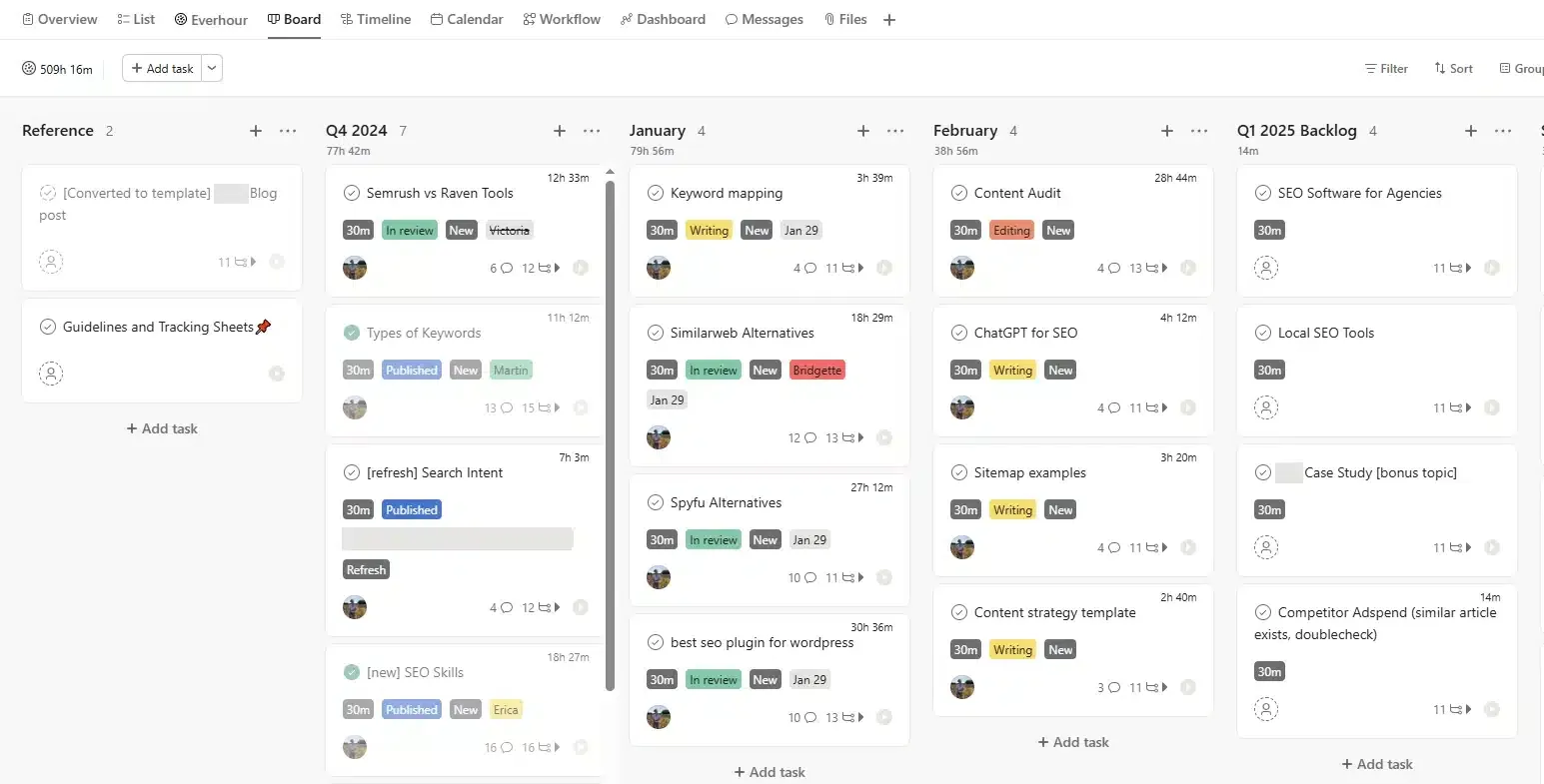
Content planning tools bring everything together in one place so you can:
- Keep track of who’s doing what
- Make sure everyone knows their role
- Get content approved without endless email chains
- Stop great ideas from getting lost in the shuffle
We rely on custom-built content workflows in Asana to keep everything on track. With clear task assignments and deadlines, everyone knows what’s in progress, what’s coming next, and what’s due—so there’s no last-minute scrambling.
With these tools, everyone knows what’s in progress, what’s coming next, and what’s due—no more scrambling at the last minute.
2. Optimizing SEO and Content Strategy
Great content is well, great, but without SEO, it won’t reach the right audience—making all that effort pointless. That’s exactly why we use content planning tools—they help us ensure every piece we create has a fighting chance to rank well in search results.
- Keyword research. Instead of guessing which topics will perform, we use tools like Ahrefs and Semrush to uncover high-impact keywords. Seeing the search volume and competition side-by-side makes prioritizing what’s worth writing about easy.
- Optimizing for search intent. Certain SEO tools allow us to analyze top-ranking pages and get recommendations on keyword usage, subtopics, and content structure.
- Structuring posts for better rankings. A well-organized article isn’t just easier to read; it performs better. We use AI-assisted outlines to ensure each post has a logical flow and supports other key pages on our site.
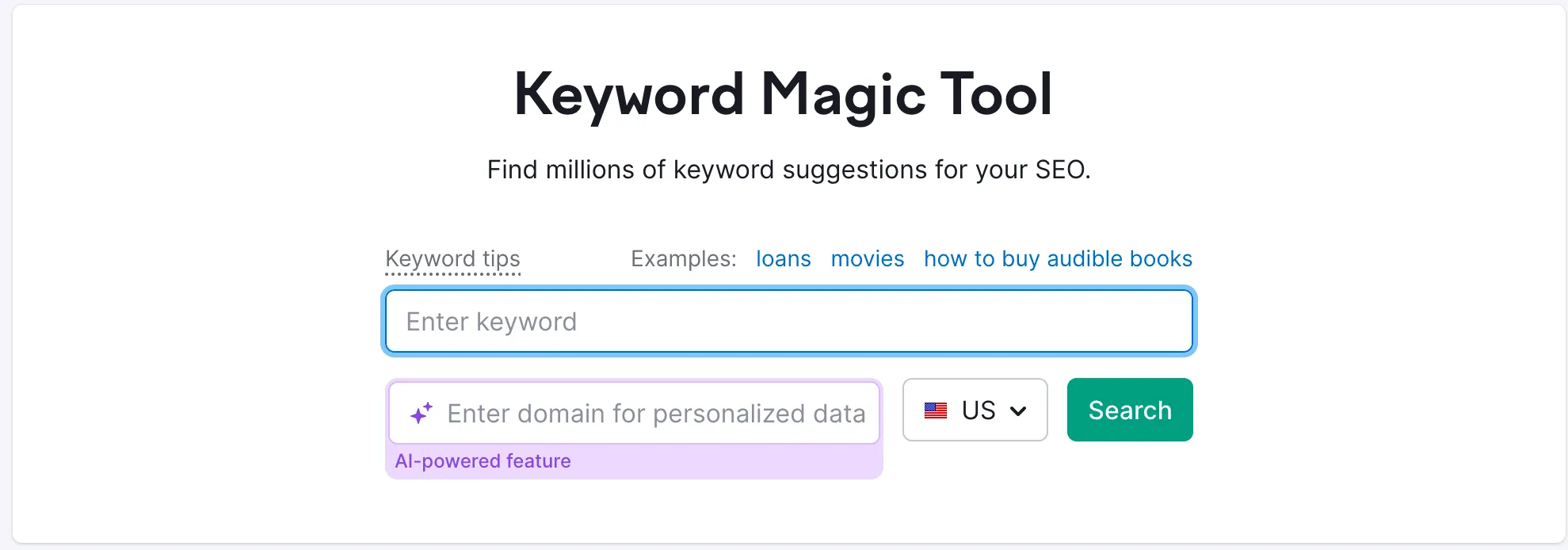
With SEO-backed planning, every piece of content serves a purpose. This includes whether it’s driving traffic, boosting engagement, or converting customers.
And the best part? No more second-guessing whether a post will actually perform. By leaning on the right tools, we can make data-driven decisions that turn content into a real growth engine.
3. Proactive Seasonal and Campaign Planning
Seasonal content is great—unless you’re the one posting about “Spooky Halloween Deals” in November. (We’ve seen it, and we cringed.)
Timing is everything. A well-planned content calendar ensures you don’t just react to trends—you anticipate them. With the right tools, you can map out seasonal campaigns, industry events, and major holidays well in advance so your content hits at the perfect moment.
- Stay ahead of the curve: Instead of scrambling at the last minute, you can plan content months in advance. This way, you can align posts with upcoming trends and customer interests.
- Optimize for search trends: Tools like Google Trends can help you spot when people start searching for seasonal topics. This allows you to publish content when interest peaks.
- Automate and schedule confidently: Social media schedulers and CMS tools let you queue up posts, emails, and landing pages ahead of time. This way, everything goes live when it should—without the last-minute rush.
- Keep evergreen content fresh: A well-maintained calendar helps identify when to refresh and repurpose older seasonal content instead of starting from scratch.
4. Tracking and Improving Performance
If you don’t measure content performance, you won’t know what’s driving results or where to improve.
The best content planning tools provide built-in analytics to track:
- Engagement rates: Identify which posts get the most clicks, shares, and attention.
- Conversions: Measure how content contributes to sign-ups, sales, or other key actions.
- ROI: Track rankings, traffic, and revenue impact to ensure your content strategy delivers measurable results.
We use these insights to expand successful topics, repurpose high-performing content, and strengthen key pages with better internal linking. If content isn’t performing well, we analyze the data and adjust the strategy. Then, we optimize where needed. That could mean improving SEO, updating outdated information, or refining the format.
Top Content Planning Tools for 2026
6With increasing content planning software available, choosing the right tool can feel overwhelming. It’s important to pick software that aligns with your specific needs. This could be SEO optimization, team collaboration, content scheduling, or performance tracking.
Below, I’ll explore some of the best tools available in 2026 (and touch on the ones my agency and I use) to streamline your content marketing strategy.
SEO and Content Optimization Tools
Content marketing starts with a solid SEO foundation. These tools help businesses research keywords, analyze competitors, and optimize content. The result is higher search rankings and visibility.
Ahrefs
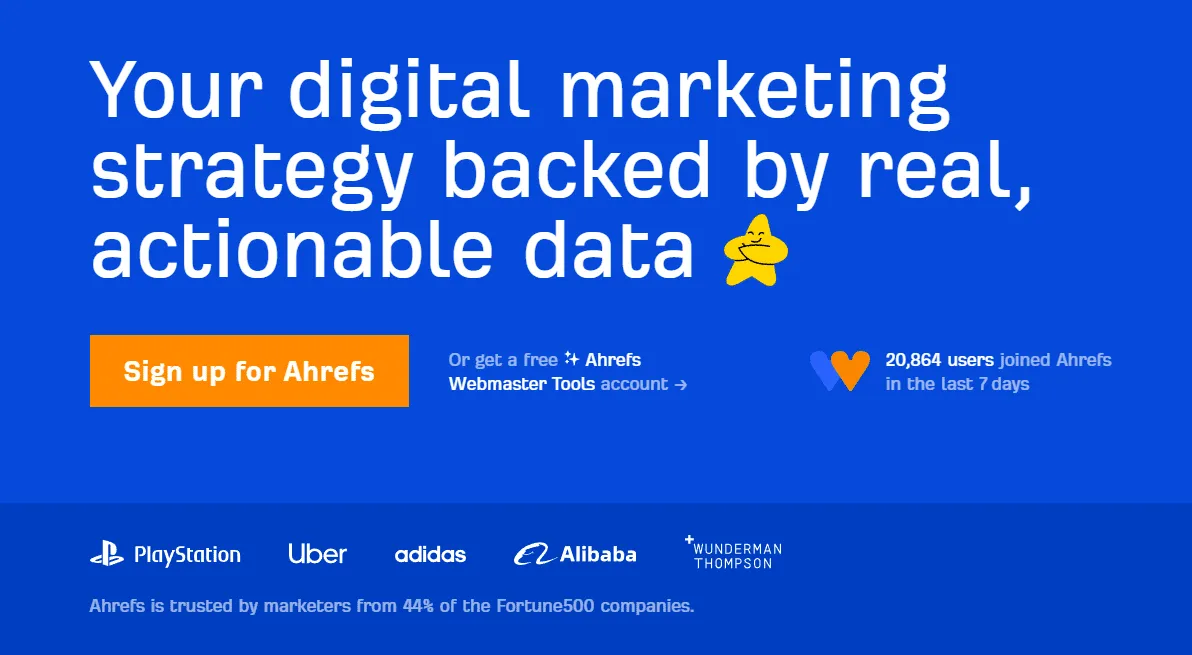
Ahrefs is an incredible SEO tool that helps businesses refine their content strategy. It analyzes search performance, discovers keyword opportunities, and evaluates competitor strategies. It’s ideal for in-depth SEO planning and getting your content to rank.
Key Features:
- Keyword research, competitor analysis, and content gap discovery
- Backlink analysis to strengthen domain authority
- Site audit tools to identify and resolve technical SEO issues
How It Helps with Content Planning:
Ahrefs is fantastic for uncovering high-value keyword opportunities. The SEOs on my team also use it to analyze search volume, competition, and search intent. They then use this to prioritize topics with strong traffic potential. These insights help us build strategic content plans that align with what target audiences are actively searching for.
Surfer SEO
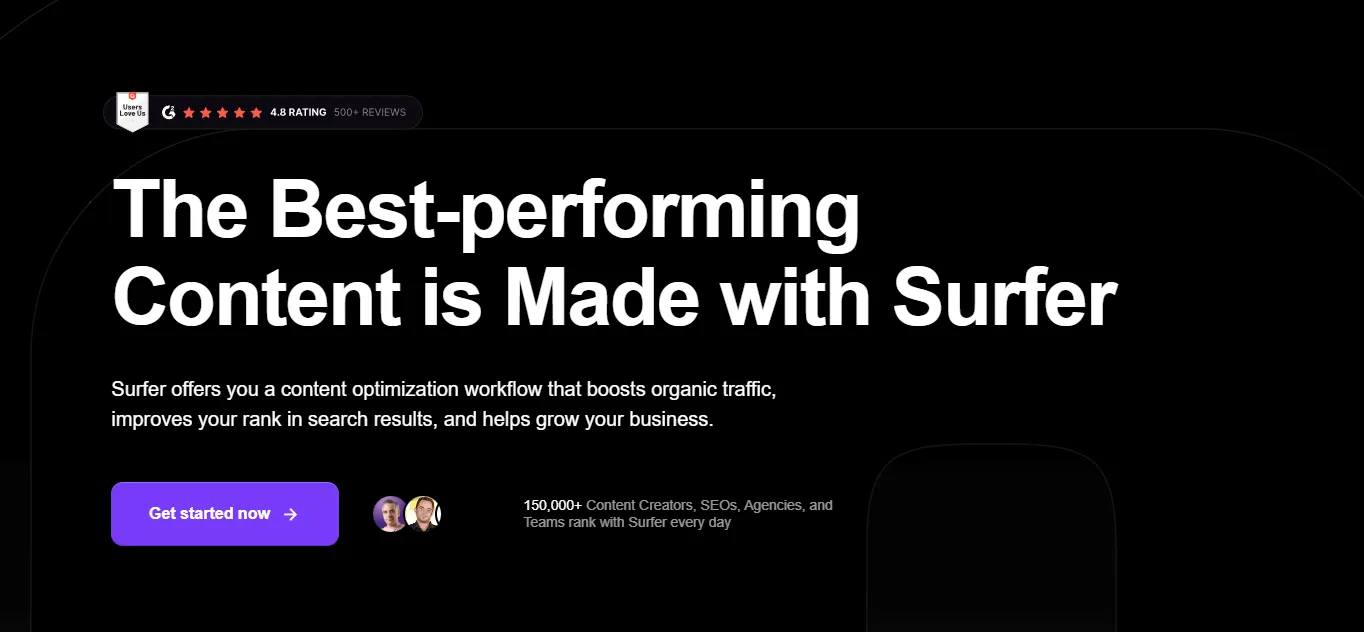
Surfer SEO takes a data-driven approach to content optimization. It helps teams create content that aligns with Google’s ranking factors. By analyzing top-performing pages, it provides recommendations on how to structure content for better SEO performance.
Key Features:
- SERP-based content recommendations and keyword clusters
- Content audits to help boost existing posts
- Google Docs integration for real-time optimization
How It Helps with Content Planning:
Surfer SEO ensures content is crafted with search intent. Providing real-time optimization suggestions helps marketers fine-tune their strategy and improve their chances of ranking.
Semrush
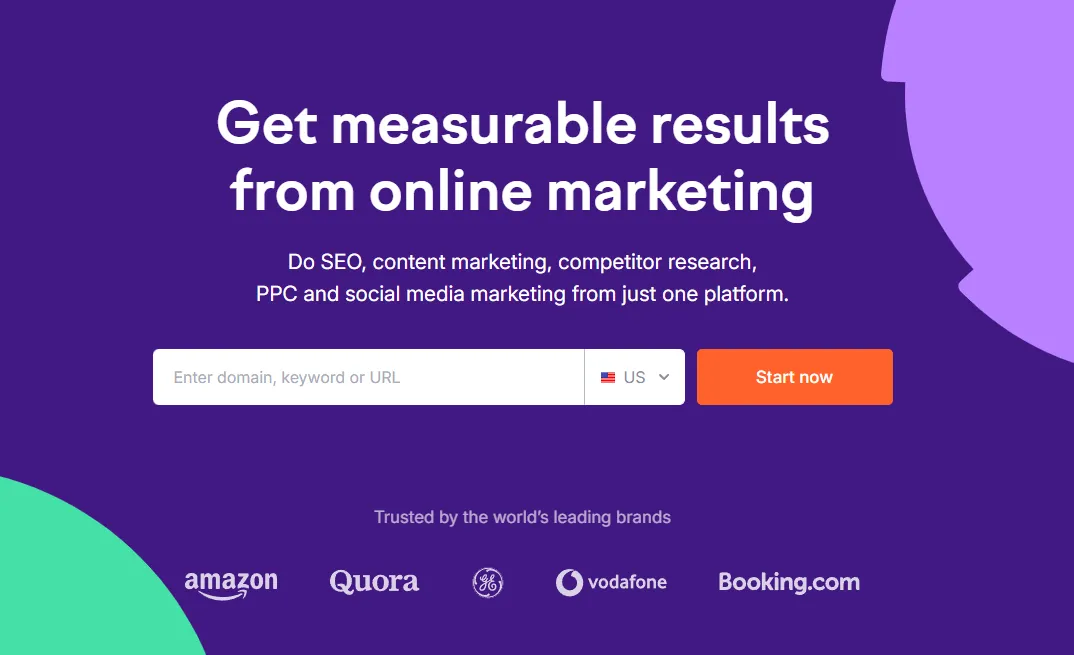
Semrush is an all-in-one SEO and marketing powerhouse that can help you streamline your content strategy with in-depth keyword research, competitive analysis, and performance tracking. Whether you’re planning new content or optimizing existing pages, Semrush provides actionable insights to improve visibility and rankings.
Key Features:
- Advanced keyword research and topic clustering
- Competitor analysis to identify content gaps and ranking opportunities
- SEO writing assistant for content optimization
- Backlink analysis and site audit tools for technical improvements
How It Helps with Content Planning:
Semrush helps you build a data-driven content strategy by identifying high-impact keywords, analyzing competitors’ top-performing content, and uncovering ranking opportunities—all tools we use daily. Its topic research tool makes it easy to generate content ideas, while the SEO writing assistant ensures your content is optimized before publishing.
Collaboration and Workflow Tools
Smooth collaboration is essential for content marketing success, especially in distributed teams. These tools help streamline workflows, improve communication, and ensure that projects stay on track from ideation to publication.
Notion
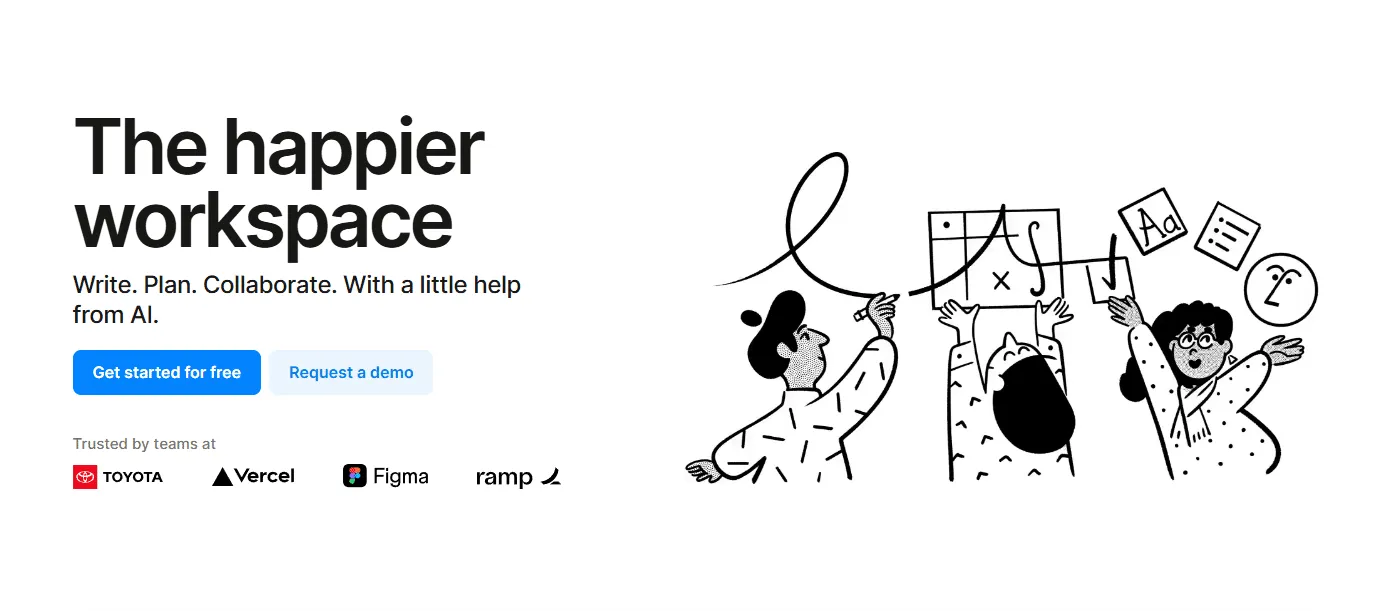
Notion is a highly flexible and customizable workspace designed for content teams that need a balance of structure and creativity. With its modular approach, teams can design their own workflows, track content ideas, and manage projects seamlessly.
Key Features:
- Templates for content calendars, task tracking, and brainstorming
- Integration with tools for a seamless workflow
- Real-time collaboration
How It Helps with Content Planning:
Notion allows teams to organize their content marketing efforts in a single, unified space. Whether it’s tracking ideas, managing deadlines, or storing research notes, Notion keeps all critical information accessible and structured.
Asana
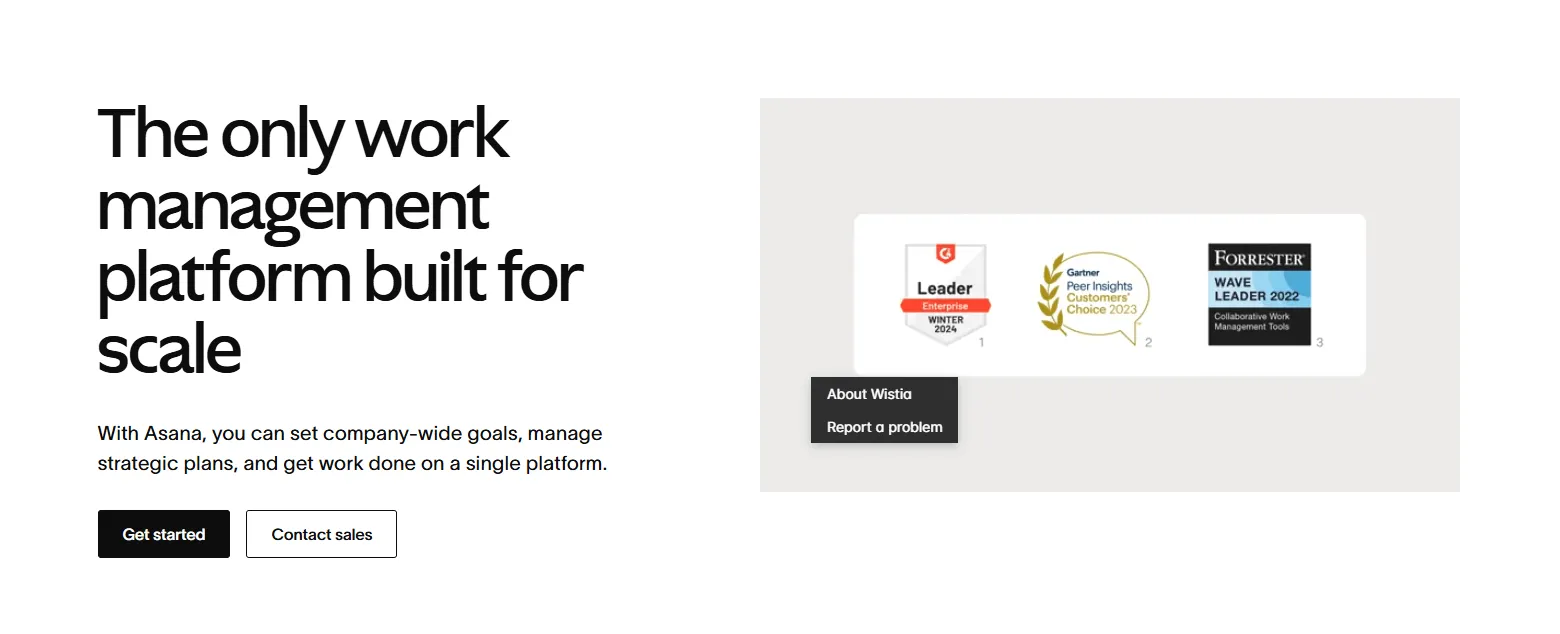
Asana is a powerful collaboration and project management tool. It aligns teams with content production timelines and responsibilities. Designed for structured workflows, it ensures that tasks are completed on time and approved before publication.
Key Features:
- Asynchronous collaboration for creating, reviewing, and approving content
- Visual content calendars with drag-and-drop functionality
- Can create subtasks and dependencies to ensure all work gets done
How It Helps with Content Planning:
Asana helps teams coordinate their content efforts. It enables you to define clear responsibilities and timelines. We use it to manage our workflow across different departments and for various clients. It’s ideal for breaking down large projects into manageable steps. This prevents last-minute scrambles and ensures smooth execution.
GatherContent
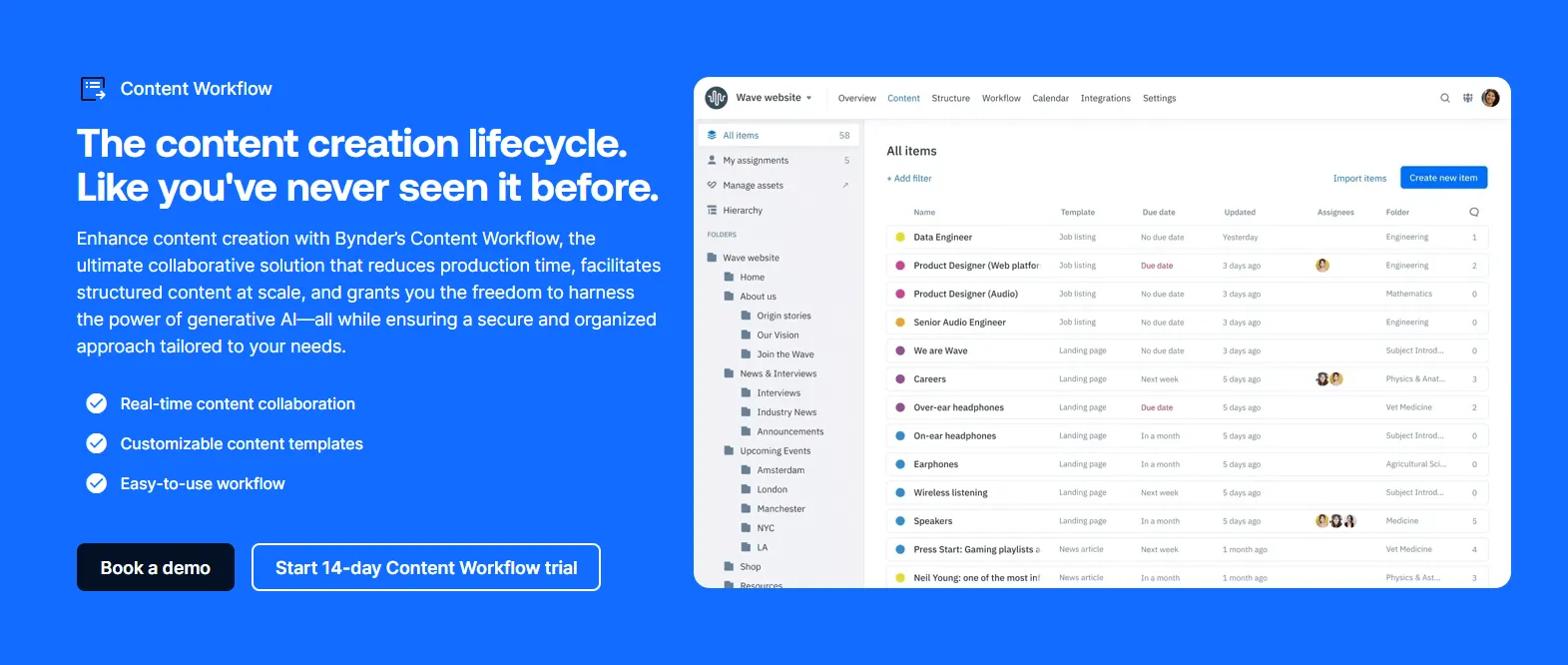
GatherContent is a content operations platform designed for businesses that need structured workflows to manage high volumes of content. It streamlines collaboration between writers, editors, and stakeholders, making content production more efficient.
Key Features:
- Content pipelines for managing workflows from ideation to publication
- Team collaboration for reviewing and approving content
- Export features for seamless CMS publishing
How It Helps with Content Planning:
GatherContent simplifies content coordination for large teams. It ensures that every piece of content meets brand guidelines before going live. It’s particularly useful for agencies and enterprises dealing with extensive content needs.
Tools for Visual and Social Media Content
Compelling visuals and a strong social media presence are essential for engagement. These tools help plan, create, and schedule high-quality visuals. At the same time, they integrate seamlessly across social media platforms.
Many tools offer AI-driven content suggestions, automatic resizing, and advanced analytics. These can be used to identify what resonates with your audience. Pairing these tools with strong content writing tools means your images and messaging work together.
Adobe Express
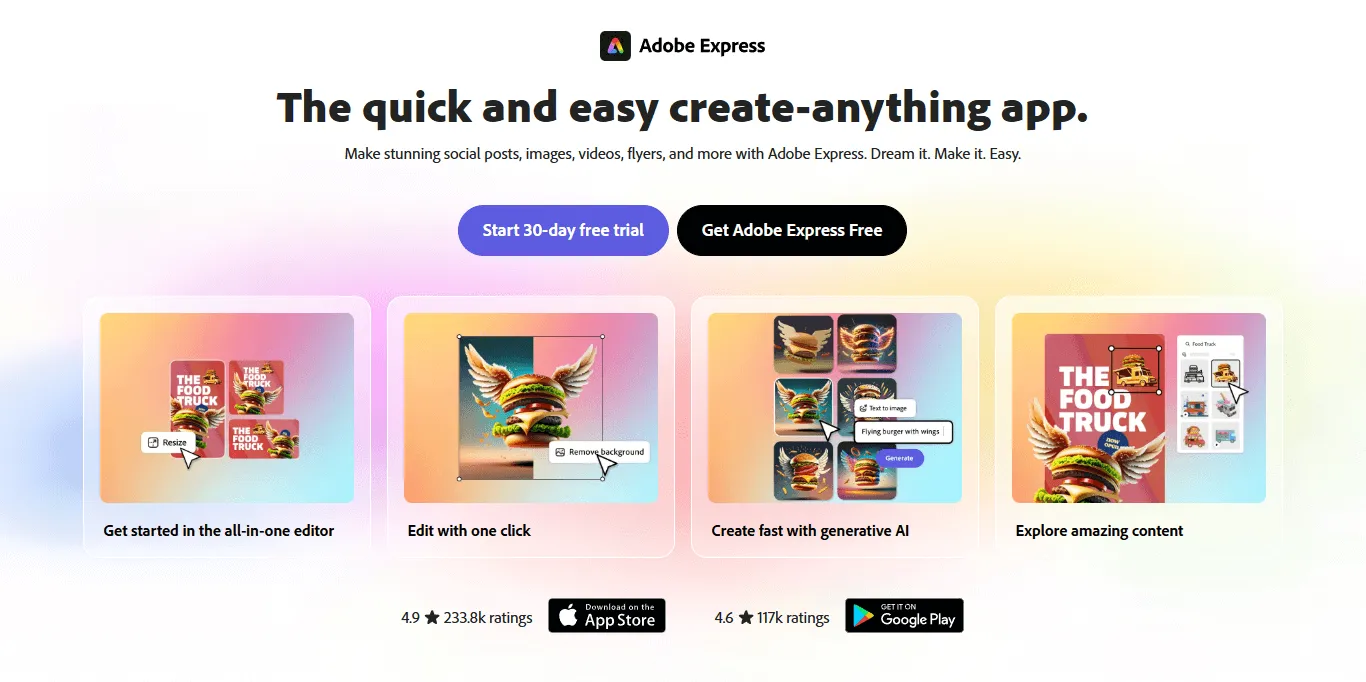
Adobe Express is designed to streamline social media content planning. It offers a user-friendly interface and powerful design tools. It helps teams create visually compelling posts while ensuring smooth scheduling and collaboration.
Key Features:
- Calendar for planning and scheduling social posts
- Workflow approvals for smoother content creation
- Basic analytics for social media campaigns
How It Helps with Content Planning:
Adobe Express simplifies the social media workflow. It allows teams to create, approve, and schedule content in one place. This helps brands maintain a consistent posting schedule and improve engagement.
Spiral

Spiral is a content repurposing platform designed to transform long-form content—such as videos, articles, and podcasts—into bite-sized pieces suitable for various platforms. This means you can expand your reach without having to create mountains of new content.
Key Features:
- Converts your existing content into formats like LinkedIn posts, email newsletters, and social media updates. This ensures your message resonates across different channels.
- Automates the repurposing process. This allows you to do what previously took several days in a single day, freeing up valuable time for other tasks.
- Maintains your unique voice across all repurposed content. This ensures consistency and authenticity in your messaging.
How It Helps with Content Planning:
Spiral streamlines content planning by enabling you to maximize the value of your existing materials. For example, you can input a podcast transcript and quickly generate YouTube titles and summary notes, making content creation faster and more efficient.
I use it to repurpose DCP’s blog content for our LinkedIn posts. Not only does this save me a ton of time and effort, but it allows me to maintain an active and engaging online presence for the agency.
Content Calendar and Project Management Tools
A well-structured content calendar keeps marketing campaigns organized and on schedule. These tools offer advanced planning features to help teams manage deadlines, assign tasks, and track progress efficiently.
Think of a content calendar as the heart of your strategy—it keeps every deadline, idea, and campaign moving in sync. Tools like these also allow automated publishing, recurring tasks, and real-time progress tracking to keep your team on track and accountable.
CoSchedule
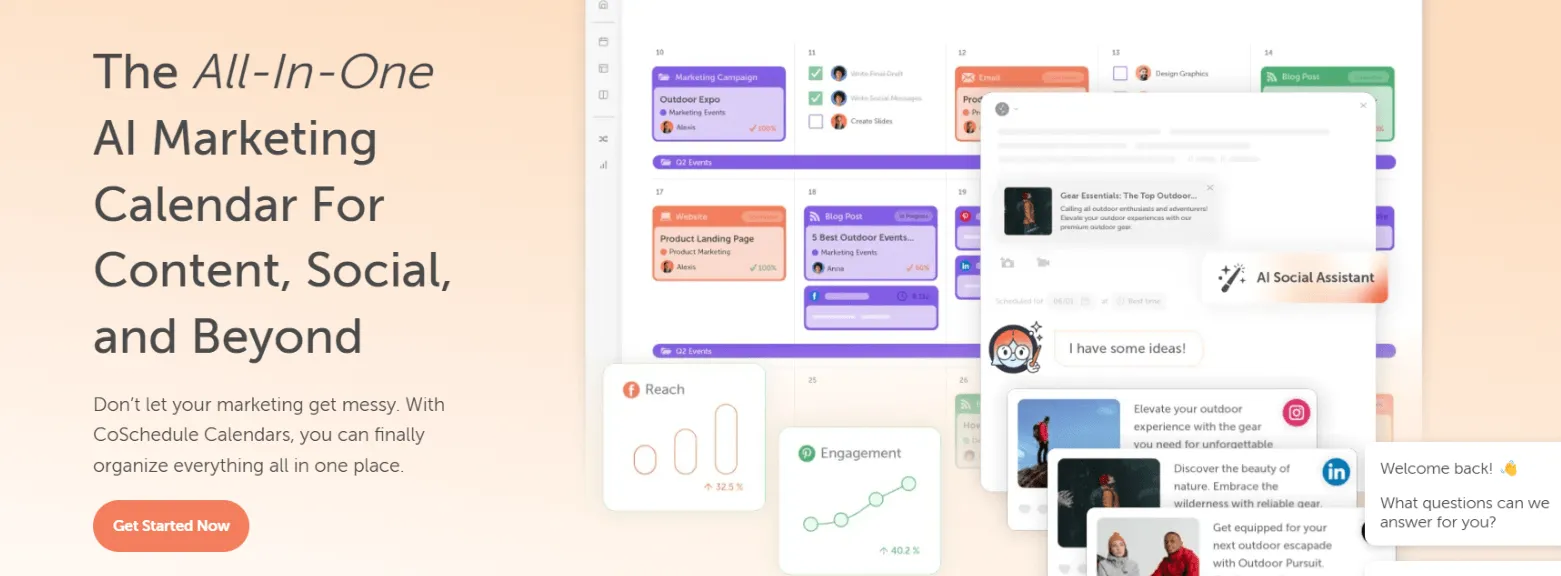
CoSchedule provides a comprehensive marketing and content creation calendar to help teams stay on track with their publishing schedules. It centralizes content planning, making it easy to organize blog posts, social media updates, and email campaigns in one place. With automation and collaboration features, teams can streamline workflows and ensure consistent content delivery.
Key Features:
- Unified calendar for scheduling blogs, social media, and other content
- Task prioritization and team collaboration features
- Analytics for tracking content performance
How It Helps with Content Planning:
CoSchedule keeps content teams organized, helps create blog post templates, and ensures every post aligns with broader marketing campaigns and business goals.
Airtable
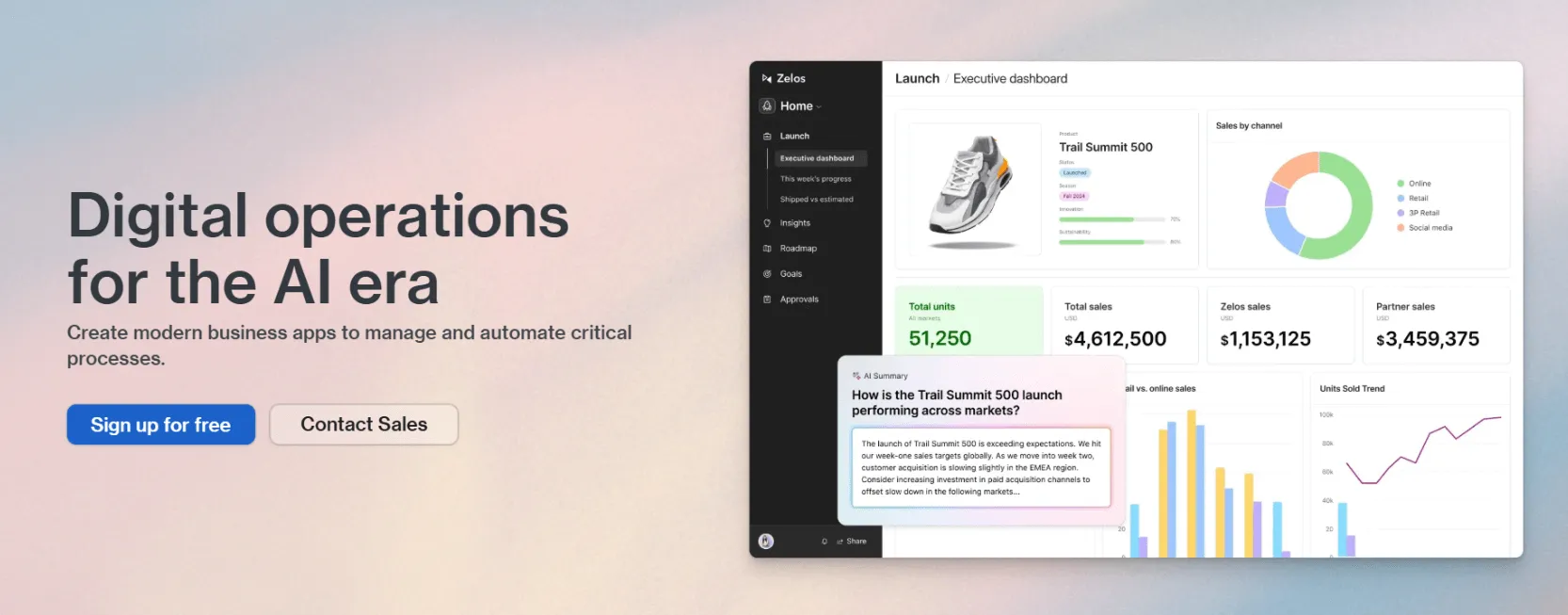
Airtable combines database functionality with a visual interface, making it easy for teams to plan and track content projects. Its customizable templates and drag-and-drop interface allow users to organize content calendars, assign tasks, and manage workflows efficiently. With real-time collaboration and integrations, teams can stay aligned and keep content production running smoothly.
Key Features:
- Customizable content databases for tracking ideas and progress
- Visual calendar and grid views for planning
- Integration with other apps for seamless workflows
How It Helps with Content Planning:
Airtable provides flexibility for managing multiple content campaigns, ensuring teams have a clear overview of tasks and deadlines.
How to Choose and Leverage Content Planning Tools for Your Team
So, which content planning tool should you use? Well, that depends—are you a one-person show juggling 12 tasks at once in a caffeine-induced frenzy, or do you have a whole team constantly asking, “Wait, which calendar am I supposed to be looking at?”
Here are some factors to consider, along with practical recommendations:
1. Identify Your Primary Content Types
The best content planning tool depends on your specific workflow and content goals. Whether you’re managing a personal blog, optimizing for SEO, or coordinating multi-platform campaigns, choosing a tool that fits your needs will make content creation more efficient.
Here are some recommendations based on different use cases:
- If you’re a blogger or solo creator, a simple tool like Notion or CoSchedule helps manage blog posts without overwhelming features.
- Ahrefs and Surfer SEO provide powerful keyword research and optimization tools for brands producing SEO-driven content.
- For teams managing multi-platform campaigns, Airtable or Asana are ideal for organizing everything in one place.
2. Consider Collaboration Needs
The number of people you work with will have a big influence on the tool that’s best for you.
- Small teams or freelancers: A lightweight solution like Notion is flexible and cost-effective.
- Marketing agencies or large enterprises: A structured workflow tool like Asana or GatherContent helps manage approvals and multiple stakeholders.
- Social media teams: Tools like Canva Content Planner or Statusbrew streamline social content planning.
3. User Experience and Adoption
Choosing the right content planning tool isn’t just about features—it’s also about how easily your team can adopt and integrate it into their workflow. A tool that’s too complex can slow teams down, while one that’s too basic might not meet your needs. Consider your team’s experience level, the learning curve, and how well the tool fits into your existing processes.
Here’s how different types of teams can find the best fit:
- If your team prefers simplicity, Notion and CoSchedule offer intuitive interfaces with minimal learning curves.
- Tools like Ahrefs and Surfer SEO for data-driven teams provide deep insights but may require some training.
- For teams with complex workflows, Asana and Airtable offer detailed task management and robust collaboration features.
4. Balance Budget with Impact
Budget and scalability are key factors when choosing a content planning tool. The right option should fit your current needs and grow with your business. Affordability, ease of use, and feature depth all play a role in making the right choice.
Here’s how to approach your selection:
- Startups and small businesses: Free or affordable tools like Notion, Airtable, or Canva Content Planner work well.
- Growing teams: CoSchedule or GatherContent scales as your content operation expands.
- Enterprises needing deep analytics: Ahrefs provides premium insights but comes at a higher cost.
Content Planning Tools Will Get You Halfway There. We’ll Get You Over the Finish Line.
Even with the best tools, content planning still takes time, strategy, and expertise.
That’s where we come in.
Our team specializes in creating SEO-optimized, high-impact content that drives traffic, generates leads, and fuels business growth.
Instead of spending hours planning, writing, and optimizing content, let us do the heavy lifting for you so you can focus on your business.
Sound good? Then check out our Content Marketing Services page to see how we can skyrocket your traffic and conversions.